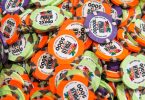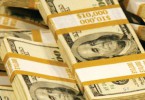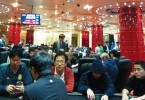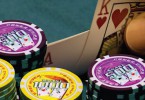This article first appeared in the Jul/Aug 2010 issue of World Gaming magazine.
Poker is a game that is very hard to run. It’s the only game where the house acts as a mediator between the players. Players are playing for big dollars. Tempers can get frayed and rules challenged as players look for any edge they can find. Those walking the floor need to know the game better than the players themselves. They have to stand their ground and control the environment. PokerStars Macau’s Fred Leung has been instrumental in building a room of world class standard right here in Asia’s gaming capital.
World Gaming caught up with Fred and asked him how he ended up with such an important position.

Where were you born and where did you grow up?
My family is from Hong Kong but I went to school in Canada. I grew up in Vancouver and then went to Toronto for university and worked there for the better part of the last decade. Eventually, I decided to make the permanent move to Hong Kong and now call Macau my home.
As a young boy what did you want to be when you grew up?
Astroboy. I’m totally serious.
What events led you into the gaming world?
I feel like most of my life has been in the gaming world in some way. My parents loved playing marathon sessions of mahjong and going to Las Vegas. When I went to university I played small stakes card games and one of my good friends eventually became a successful poker pro. The gaming world has always been a very comfortable and natural environment for me.
Was poker a natural progression or did it just happen that way?
I’ve always had a great fascination for games. The first card game I ever played was Uno but I really enjoyed (and this should be present tense) board games, video games, sports, and fantasy games. Really, anything that is competitive and strategy related.
The first game I spent a lot of time on was chess from the age of 10 to 13. I played several forms of chess including international (or normal) chess, Chinese chess, and go. I had a cousin that was about 10 years older than me and in the beginning I lost all the time. However, my natural competitiveness drove me to improve until I beat him and it felt great to succeed against an adult in a thinking game.
Poker was just another game amongst games for me. I started out playing mainly draw and stud poker. I learned Texas holdem poker during university but it wasn’t until that same friend started beating the game regularly that it piqued my interest several years later. I held a home tournament, which I won, and my poker pro buddy thought I had the right idea and he eventually became my poker mentor. It was like learning chess again and I spent years studying the game by playing online at sites like PokerStars. Eventually, holdem became so popular I decided to run my own poker tour which was a circuit of homes around the greater Toronto area. In fact, I use a lot of those organisational skills today in my job.
You have now worked with some of the best, what’s it like working with the likes of Danny McDonagh?
Danny McDonagh is truly a world class tournament director who has an easy going personality with an extremely focused desire for perfect operations. It’s pretty easy to love Danny on both a personal and professional level.
Where do you see PokerStars Macau and poker in general in Macau in five years time?
PokerStars Macau will surely hold one of the world’s top ten poker tournaments within five years. Many people make the incorrect assessment that Asia is in a poker boom when in fact it’s just PokerStars accelerating the poker education process ahead of natural growth. When the poker boom finally comes we won’t see jumps from 200 to 300 players in tournaments. Eventually, it will spike from 800 to 2,000 in a blink of the eye.
In fact, one of the new projects is the Macau Millions from August 4 to 8 where PokerStars Macau is looking to smash the current record of 538 players for a tournament in Asia. It’s a great concept where players only need HK$2,200 to register for a tournament with a guarantee of HK$1 million. I’m hoping to see over 1,000 entries and doubling the guaranteed prize pool to over HK$2 million.

What do you love about poker?
What I love about poker is that it incorporates many of my interests. Poker fuels my desire for competition while providing me a social activity that builds onmy strengths like mathematics and people skills. Poker is also a game where you have an opportunity to play against the heroes of the game. I know I’ll never beat Tiger Woods in golf or Michael Jordan in basketball, but I’ve had the chance to beat world champions which is an opportunity I simply wouldn’t have in any other sport.
What do you not like about the poker world?
One thing I really don’t like is the wider perception of the poker world. Many people still view poker as gambling like any other table game. There’s still this image of hustlers and gangsters playing in a smoky room.
No doubt this may have been the case long ago but it’s not today’s reality. Poker players of the modern game realise that poker is a game of skill and many successful poker players are people with Masters degrees and PhDs. A perfect example is Victorino Torres who won this year’s APPT Macau and works as a lawyer.
Who are a couple of the best players you have ever seen and why?
“Best” is always hard to measure but I’d say one of the hottest tournament poker players right now has got to be Team PokerStars PRO Raymond Wu from Taipei. Ray ended 2009 with a seventh place finish at EPT London and then shocked the world by leading Team Chinese Taipei to victory at the PCA World Cup of Poker. Then Ray ended up winning the record field Red Dragon at the Macau Poker Cup in March. It’s no surprise that Ray is currently ranked number one on the Asia Player of the Year Leaderboard.







